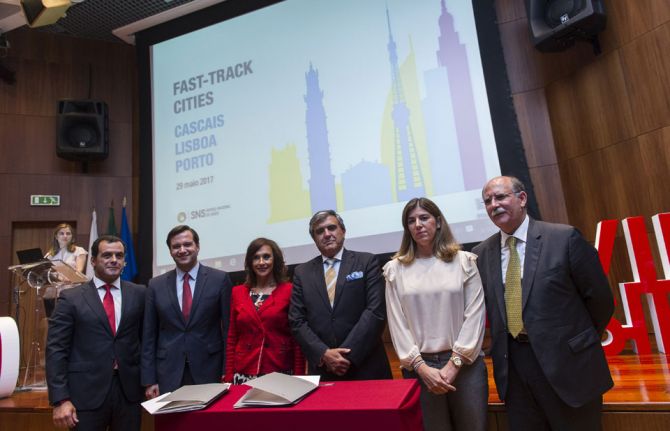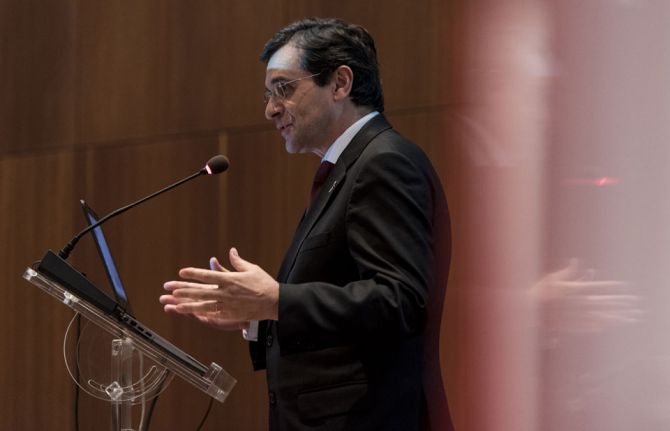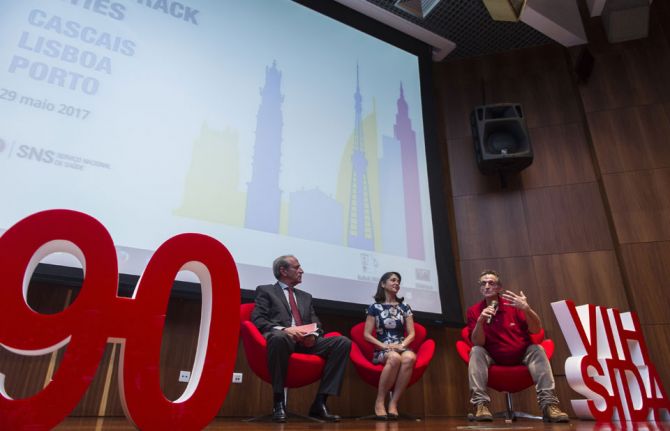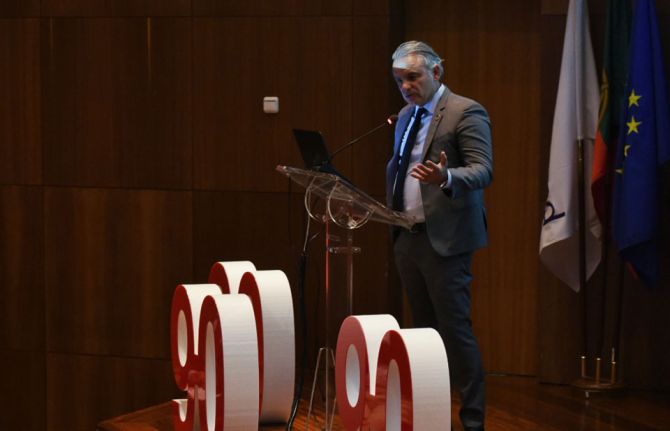




Update
Cascais, Lisbon and Porto sign the Paris Declaration on ending the AIDS epidemic in cities
31 May 2017
31 May 2017 31 May 2017The mayors of the Portuguese cities of Cascais, Lisbon and Porto have signed the Paris Declaration on ending the AIDS epidemic in cities—the first time that three cities in the same country have signed the declaration together.
In signing the Paris Declaration, mayors commit to putting their cities on the Fast-Track to ending the AIDS epidemic. The three mayors committed to achieving the 90–90–90 targets by 2020, whereby 90% of people living with HIV know their HIV status, 90% of people who know their HIV-positive status are accessing treatment and 90% of people on treatment have suppressed viral loads. They also committed to eliminating all forms of discrimination and developing a people-centred approach to the AIDS response, leaving no one behind.
During the signing ceremony, which took place on 29 May in Lisbon, Portugal, the Minister of Health of Portugal, Adalberto Campos Fernandes, reaffirmed the political commitment at the highest level to the response to HIV and highlighted that the 90–90–90 targets have a new impetus in the country.
The three cities will establish local strategies to remove barriers to accessing HIV services, eliminate discrimination and close the gaps to reaching the targets in the Paris Declaration. To that end, the Government of Portugal has put together a group of experts from government bodies, civil society and academia, who will identify and recommend concrete actions in the next 90 to 120 days.
During the event, the Director of the national AIDS programme, Isabel Aldir, presented the results of the national programme for HIV and tuberculosis for 2017. Ms Aldir said that in 2016, there were 841 new HIV infections in the country, the lowest for 15 years. Nonetheless, the plan for 2017 will focus on increasing the number of rapid tests by 15% and developing clinical guidance standards for the effective provision of pre- and post-exposure prophylaxis. The plan will also include preparing an evaluation report on a pilot project for dispensing HIV treatment in community pharmacies and promoting the implementation of the Fast-Track cities commitments.
Quotes
"Today is a historic day because, once again, Portugal proves that when we work together nothing is impossible. After winning the European Football Championship and the Eurovision Song Contest, it is now time to win the fight against AIDS. By working together, the government, city mayors, national health institutions, the social and private sector and civil society, we will build a better country, free of HIV and free of discrimination. Together we will always be stronger!"
"By joining the UNAIDS Fast-Track Cities global movement, Cascais has made a firm commitment to work towards the Sustainable Development Goals and to ending AIDS as a public health threat by 2030. The Cascais City Hall is proud to be working with SER+ Patient Association and other local and national partners in this project, promoting better health and more social justice for all our citizens."
“Portugal is an example of a successful response to AIDS that has put people’s needs first. Its success is based on a strong political leadership as demonstrated again here today, an inclusive legislation that protects people from discrimination and a very active civil society.”
“Political leadership is needed to facilitate access to health services, including for HIV, to migrant populations, whose HIV prevalence is increasing, especially in big cities. Portugal has become again a leading example on public health and human rights-based policies by removing all barriers on access to prevention, diagnosis and treatment of HIV, tuberculosis, viral hepatitis and sexually transmitted infections for undocumented migrants in 2017.”
“The International Association of Providers of AIDS Care welcomes the cities of Cascais, Lisbon and Porto as the most recent European cities to join the Fast-Track cities network. Working in collaboration with local stakeholders, including government officials, community representatives and clinical and service providers, we are convinced that these three cities can attain the 90–90–90 targets by 2020, thus assisting the country of Portugal to do so as well.”
Region/country
Related
 Government ensures continuity of treatment in Malawi
Government ensures continuity of treatment in Malawi

10 February 2025


